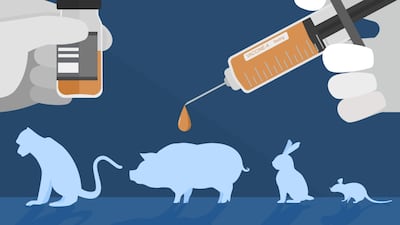The Health and Human Services general counsel referred the online health platform to the Justice Department to investigate potential violations of the Food, Drug and Cosmetic Act after the firm announced it would offer a compounded version of Novo Nordisk’s oral Wegovy.
Recommendations to mitigate attrition among clinical research and drug manufacturing investigators at the FDA have not been implemented, and a Strategic Workforce Plan aimed at addressing recruiting, retention and training challenges has been shelved, the Government Accountability Office said.
The FDA wants to waive facility fees for three years if a sponsor breaks ground on a US-based manufacturing plant, but industry is concerned the idea will force other sponsors to subsidize competition.
By challenging claims across Teams backgrounds, in addition to websites and television ads, the FDA signaled a broader front in its drug promotion oversight.
Consistent, AI-verifiable clinical and SEC disclosures are now essential to protect valuation and avoid litigation. Misalignment creates measurable regulatory, financial, and legal risk, while disciplined, synchronized disclosure strengthens credibility and reduces exposure.
DARI is an AI enabled framework that scores how well clinical trial disclosures align across SEC filings, registries, press releases, and presentations, identifying risks in timing, accuracy, consistency, governance, and tone to flag regulatory or litigation exposure.
ARS Pharmaceutical and Altor BioScience received second untitled letters for identical or similar promotional claims that the agency flagged as violative in its September enforcement blitz.
Patients severely burned in a Swiss bar fire have been treated with a novel, life-saving antimicrobial containing sulbactam and durlobactam. But this drug has never been filed for approval in the EU, something that is “disappointing” according to the EMA’s Marco Cavaleri.
Sponsors now must specify domestic manufacturing facilities and bioresearch monitoring study sites at least 60 days before the complete application is submitted, which appears intended to ensure inspections keep pace with the compressed review timelines.
The European Parliament has adopted its position on the Critical Medicines Act, prompting industry representatives to highlight ongoing areas of concern in the proposal.
New compliance measures for big pharma under the amended EU sustainability reporting and due diligence directives could lead to new contractual requirements for smaller partners.
The Swiss pharma co-authored a “call for bold life sciences investment” with the Eurasia Group, critiquing global trade policy and advocating “innovation-friendly” reforms, including moving away from reference pricing.
Regulatory streamlining including in areas such as test licenses and cell/gene therapy, and policy support/incentives to propel innovation, were among the key themes that played out in India in 2025. More action is anticipated in this year, including in the biosimilars segment.
Changing regulatory standards for cell and gene therapies extend the flexibility with manufacturing while the tabelecleucel complete response letter showed high expectations for rigor in clinical trials.
The announced agreement means AbbVie and Regeneron are the only companies of the 17 notified by the White House in July yet to make a deal.
The UK’s latest economic budget, which will enter into force this April, offers “nothing” to support the government’s claim that it is making it easier for startups to launch, scale and remain in the UK, a biotech founder and lawyer argues.
To give teeth to its enforcement blitz, the FDA could move against companies that have not discontinued or revised ads cited as violative, experts said. In the meantime, the National Advertising Division is serving as an alternative enforcement mechanism.
A wave of FDA warning and untitled letters left drug marketers rethinking risk disclosures, visuals and promotional claims as well as bracing for more enforcement letters in 2026, with a close eye on social media promotion and vaccine advertising.
The FDA wants to extend the goal date for some applications with facilities that receive a pOAI classification to allow more first-cycle approvals.
The UK’s roadmap for reducing animal testing is a positive starting point, but greater transparency from the drug regulator and a more detailed workplan from government will be required to make the plans a reality, an expert from Cruelty Free International says.




















